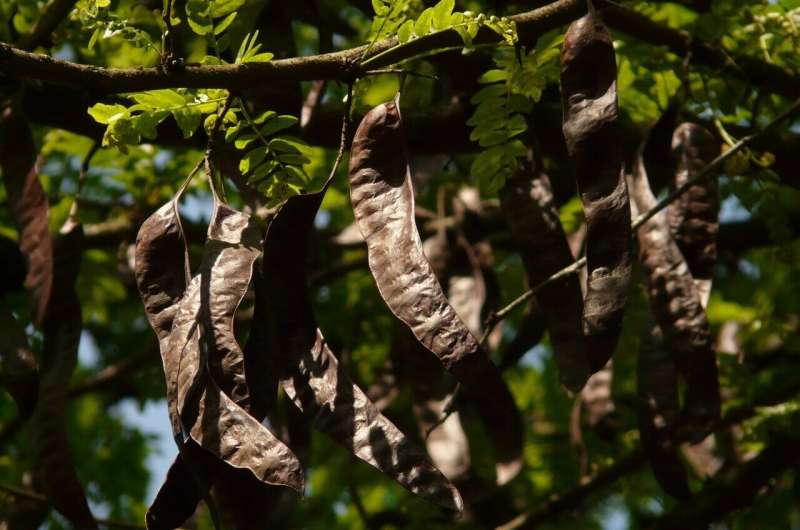Legume trees key to supporting tropical forest growth

Researchers have found that nitrogen-fixing legume trees can support themselves and surrounding trees not only with increased access to nitrogen, but with other key nutrients through enhanced mineral weathering.
The team, led by the University of Sheffield and the Smithsonian Tropical Research Institute, have published their findings in the journal PNAS which provide new insights into the role of nitrogen-fixing trees in safeguarding the function of tropical forests within the biosphere.
The findings may also help inform practitioners and policy makers on how best to approach reforestation on degraded land and help meet climate change mitigation targets.
The researchers discovered how the nitrogen-fixing legume trees overcome the constraints of growing on ancient, nutrient-poor tropical soils by accelerating weathering processes, releasing vital nutrients for themselves and surrounding trees in the forest.
The trees are able to accelerate mineral weathering processes by locally acidifying the soil and adjusting the carbon to nitrogen ratio of the soil, ultimately changing the microbial community.
This change in soil microbes improves access to nutrients and favors a type of bacteria that breaks down iron, releasing iron-bound minerals critical to tree growth.
Legume trees are also particularly important in the process of forest recovery because they are able to supply fresh nitrogen into soils, which gets broken down by bacteria and utilized by the legume tree and trees around it.
Dr. Dimitat Epihov, lead author of the research from the University of Sheffield's Leverhulme Center for Climate Change Mitigation, said: "Our research shows that legume trees not only provide valuable nitrogen through their symbioses with bacteria that live in their roots, but interact with free-living soil bacteria allowing nutrients to be chemically released.
"We discovered the abundance of a novel group of acid-loving bacteria, key in liberating minerals locked in iron minerals beneath legume trees, and that those benefits are passed on to nearby trees."
Professor David Beerling, Director of the University of Sheffield's Leverhulme Center for Climate Change Mitigation, said: "By using advanced genomic sequencing techniques we have addressed a long standing puzzle of how fast growing trees access sufficient nutrients to support their growth from nutrient-poor soils.
"The answer, it turns out, is to exploit specialized consortia of soil microbes whose metabolism allows them to efficiently break down rocks and extract nutrients they contain."
More information: Dimitar Z. Epihov el al., "Legume–microbiome interactions unlock mineral nutrients in regrowing tropical forests," PNAS (2021). www.pnas.org/cgi/doi/10.1073/pnas.2022241118
Journal information: Proceedings of the National Academy of Sciences
Provided by University of Sheffield




















